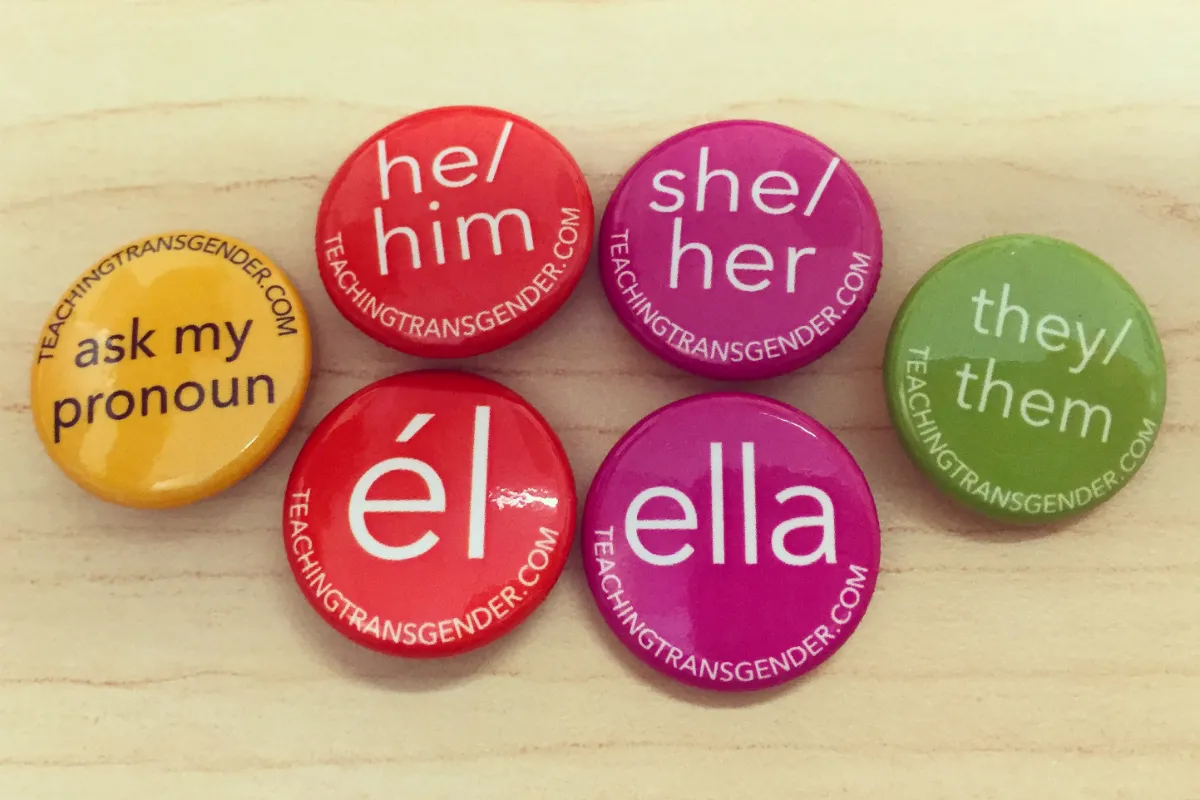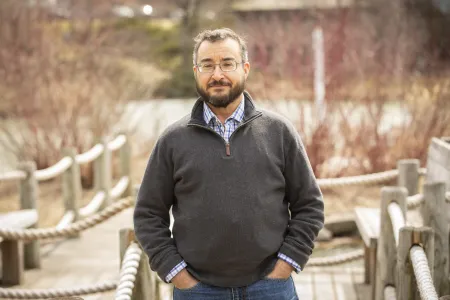IC NEWS: How should people share their personal pronouns? Should everyone do so, or is it only important for people with pronouns that others might not expect?
MAURER: I think it is a best practice for everyone to share their pronouns, because there’s really no way for us to know what pronouns people use unless they let us know. And a person’s pronouns may change not just over time as a person comes to understand themselves, but also depending on the situation, depending on a person’s sense of safety. It’s not just something for transgender or non-binary folks, or people whose pronouns aren’t what we expect. It’s for everyone. And it should never be mandatory. Because again, that can put people in uncomfortable situations.
I think it’s very powerful when non-transgender people model using their names and pronouns in a very seamless way. During fall orientation at IC I was at some events where a couple of speakers did that. The topics of their talks had nothing to do with pronouns or gender, but the act of introducing themselves and their pronouns was very powerful, I think, for everyone. It made people whose pronouns are a source of contention for others feel seen. And maybe for people who have the privilege to not have to think about their own pronouns, they had one moment to think, “I wonder why they did that?” Even I was struck by that. Folks can work in solidarity with LGBTQ people by making that a practice. LGBTQ people sometimes face risks for stating their pronouns, whereas people who use the pronouns we might assume of them probably have the most freedom and privilege to model for everyone else how we can interact with each other in a respectful and kind way.
IC NEWS: What should someone do if they accidentally use the wrong pronouns when referring to another person?
MAURER: Mirroring what I said earlier, if you used the wrong pronoun and you realized it during your conversation, try to catch yourself right away and say, “Oh, I used the wrong pronoun. I’m sorry.” Acknowledge that it happened, give a brief, immediate and sincere apology, and then move on. Everybody knows what it’s like if somebody apologizes and they’re not sincere, and many people have had the experience where they’re owed an apology but the other person blew it up to such a proportion that it started to feel uncomfortable. So be immediate, brief and sincere, without making a big deal about it.

